Discover the Top 7 Video Conferencing SDK Vendors of 2026
Software Development Kits (SDKs) are an essential part of the modern development landscape, allowing developers to integrate advanced functionalities like video conferencing into their applications easily. In 2026, SDKs have evolved to support features like AI-powered meeting assistants, real-time transcription, and enhanced security protocols, enabling seamless integration with emerging technologies such as virtual and augmented reality (VR/AR).
Today we’re going to explore the benefits of online video conference SDKs and share our top 7 vendors.
Table of Contents
Video calling SDK benefits
The benefits of SDKs for video conferencing integration are greater than ever, especially as SaaS and cloud-based communication platforms increasingly incorporate AI and machine learning (ML) for enhanced performance and security. Key benefits now include:
- AI-powered features: SDKs now often come pre-integrated with AI capabilities, like real-time translation, automated meeting summaries, and sentiment analysis, making them much more than simple video tools.
- Multi-device compatibility: With the rise of IoT and smart devices, modern SDKs are designed to integrate seamlessly across mobile, desktop, and wearables.
- Cloud-native scalability: SDKs today are cloud-native and can scale automatically based on demand, providing businesses with the flexibility they need without worrying about infrastructure overhead.
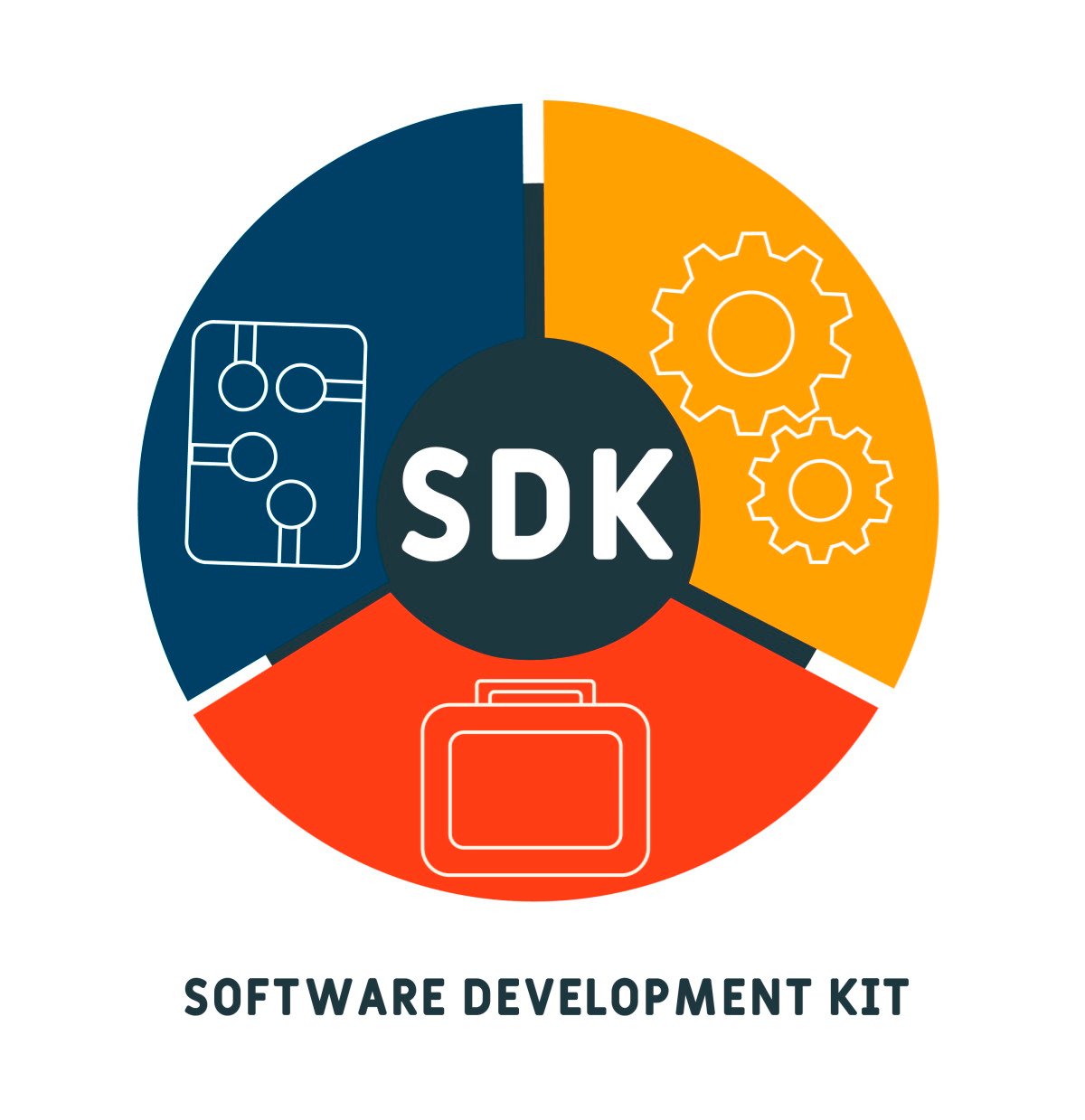
Top 7 video SDK vendors
The video SDK market continues to expand rapidly in 2026, with new players offering innovative solutions for a wide range of industries. Here are the top 7 video SDK vendors leading the way this year:
Digital Samba
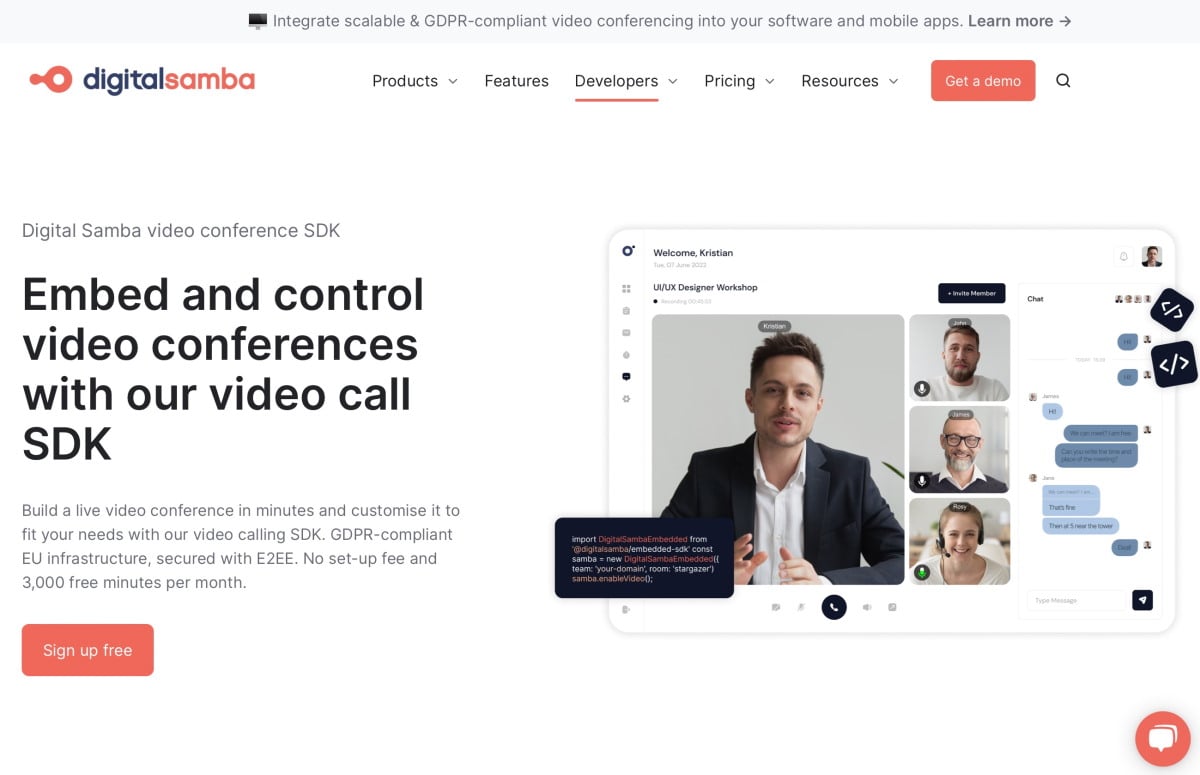
Digital Samba Embedded
now incorporates cutting-edge, AI-powered features, including real-time speech-to-text transcription, automated content summaries, and dynamic background noise reduction. The SDK is optimised for cloud deployment, enabling enterprises to scale their video capabilities globally with ease. As a company headquartered in Europe, Digital Samba offers a fully GDPR-compliant and secure solution. Our SDK is powered by robust and reliable cloud infrastructure, boasting an impressive 99.99% uptime.
SDKs are increasingly favoured by enterprise customers and are gaining traction in the open-source community. The primary user base for Digital Samba's video conferencing SDK consists of independent developers working on commercially viable projects. Our openness encourages smaller developers to access the same tools and resources as larger enterprises.
We place a strong emphasis on support and stability within our service offering. Our exceptional customer support is a key strength of our brand, ensuring that our clients have a smooth, hassle-free experience. Digital Samba’s product support is structured in a tiered system, beginning with a comprehensive help page, followed by live technical support directly from Europe, and escalating to a dedicated ticketing system for more complex queries.
Real-time support ensures that developers receive maximum value from the Digital Samba SDK and API. We provide the necessary assistance to help developers navigate any challenges and avoid unsupported edge cases.
Pros:
- 99.9% uptime
- Based in Europe
- Diverse feature set
- Proven scalability
Cons:
- Not all embedded features are included in the SDK
Pricing
- Free option (up to 100 attendees)
- Create - €99/month
- Create S - €99/month
- Enterprise - contact for a quote
Contact the Digital Samba sales team today to request a free demo or learn more about our pricing options.
MirrorFly
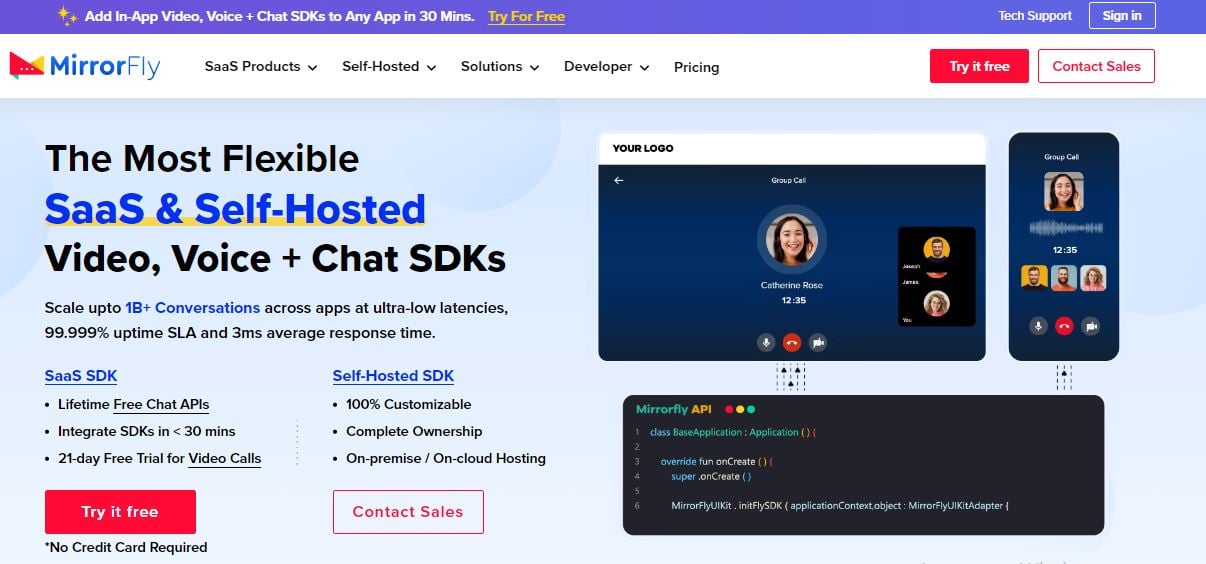
MirrorFly has recently enhanced its security features by integrating blockchain-based data protection, ensuring real-time encryption and compliance with global data protection regulations such as GDPR and CCPA. Additionally, MirrorFly now offers integration with AI-driven sentiment analysis and user behaviour analytics to better understand user interactions.
Pros:
- 99.999% uptime SLA
- Lifetime free chat access
- Easy integration
- Enhanced data security and privacy through blockchain integration
- Advanced user interaction insights via AI-driven sentiment analysis
Cons:
- Disabled video recording
Pricing
- SaaS:
- Easy: Lifetime free chat
- Essential: Starts at $299/month
- Premium: Starts at $999/month
- SaaP:
- Fully customisable SDK at a one-time licence cost with white-label solutions
Jitsi
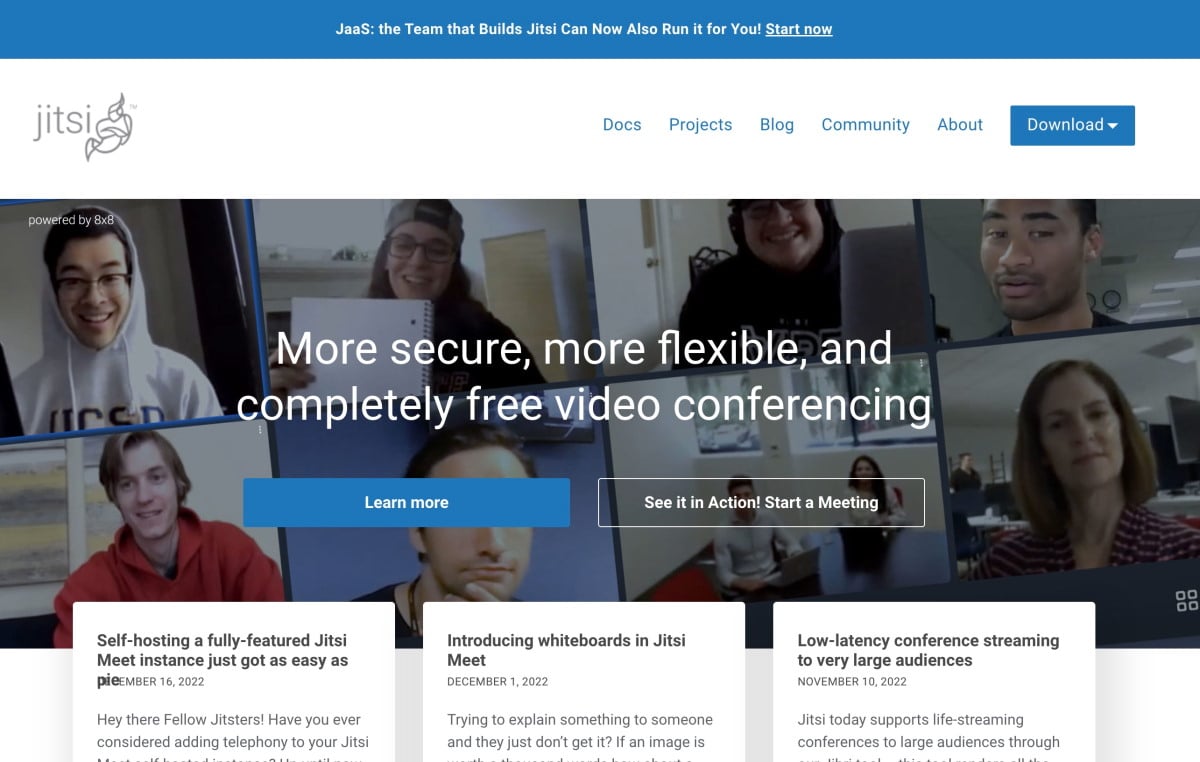
Jitsi remains a powerful, free, and open-source platform for video calls that provides real-time communication services. It is developed and maintained by a large community of volunteers and contributors, making it one of the most widely used open-source video conferencing solutions. Jitsi is compatible with various devices and platforms, including web browsers, mobile phones, and desktop computers, making it a versatile option for app developers and businesses alike.
An open-source SDK like Jitsi provides significant cost savings, flexibility, and access to a broad range of tools and features that are continually updated by the community. Unlike proprietary SDKs that require licensing fees, Jitsi's open-source SDK is freely available for anyone to use, making it an attractive option for businesses looking to build custom video conferencing solutions without the high costs associated with paid platforms.
Using the freely available source code, developers can modify the SDK to meet their specific needs, allowing for a high degree of customisation and flexibility in integrating video conferencing capabilities into their applications. However, it’s important to note that open-source SDKs, such as Jitsi, often require specialised expertise to set up and customise effectively.
Pros:
- Highly customisable, allowing developers to tailor features and functionalities.
- Cross-platform support, ensuring compatibility across multiple devices and platforms.
- Open-source, offering significant cost savings and access to community-driven updates.
Cons:
- Complex setup process that may require specialised knowledge for installation and configuration.
- While free, additional resources (such as servers for hosting) can lead to additional costs depending on the scale of deployment.
Pricing
- Free: Jitsi is completely open-source and free to use, but you may incur additional costs if you require dedicated hosting or premium support.
Looking for more support and features than open-source can provide? Explore our Jitsi Meet SDK alternative with advanced support for enterprise video applications.
Agora
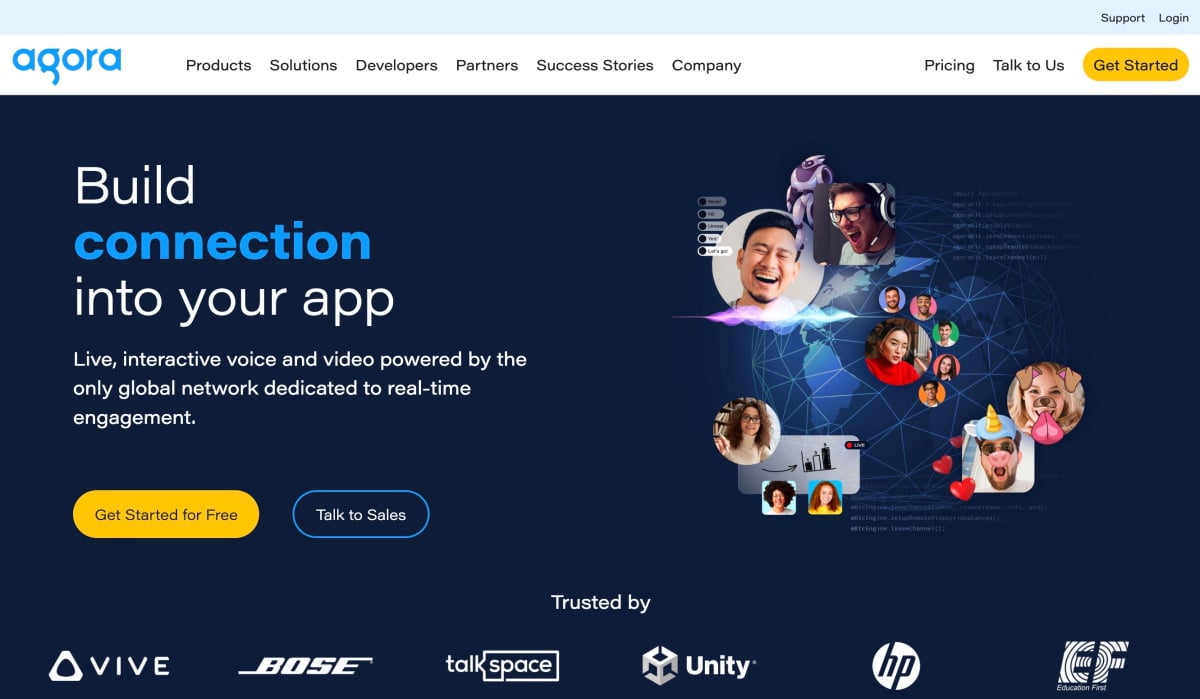
Agora's Video SDK enables developers to integrate real-time audio and video communication into applications across multiple platforms, including Windows, macOS, iOS, Android, and web browsers. It supports popular gaming engines like Unity and Unreal Engine, facilitating the creation of interactive experiences. The SDK employs a client-server architecture, offering features such as echo cancellation, noise suppression, and automatic gain control to ensure high-quality audio and video interactions. Security measures include encrypted communications, role-based access control, and a built-in user management system. Agora's global network of servers ensures low latency and reliable communication for users. Additionally, Agora provides a cloud-based recording service that allows developers to record and store voice and video calls. The SDK is widely used in industries such as education, healthcare, and gaming.
Pros:
- Customisable features
- Cross-platform support
- Open-source availability
- Scalability
Cons:
- Limited flexibility in certain aspects
Pricing: Agora offers a pay-as-you-go pricing model, with costs varying based on factors such as the number of attendees, usage time, and video quality.
Twilio
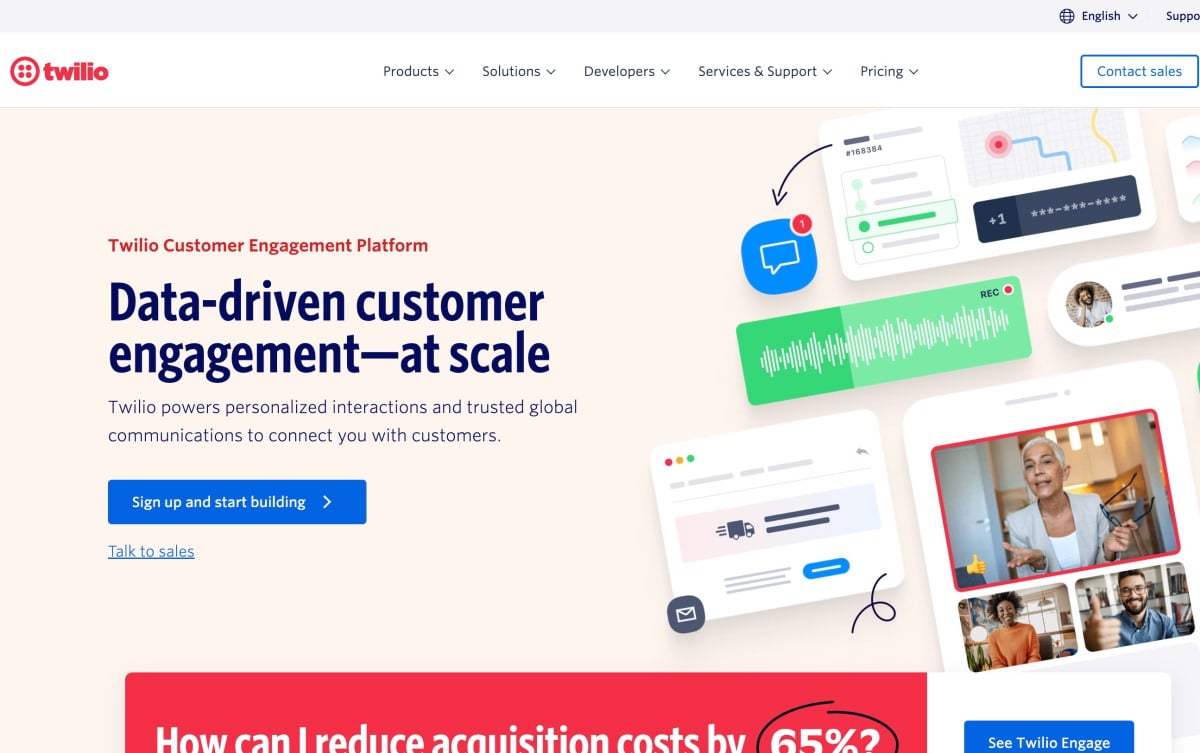
Twilio's Programmable Video SDK enables developers to integrate real-time video and audio capabilities into web, iOS, and Android applications. Built on WebRTC, it offers APIs and SDKs to capture, distribute, record, and render high-quality media.
Key features:
- Cross-platform support: Compatible with web browsers, iOS, and Android devices.
- Scalability: Designed to handle applications of varying sizes, from small group calls to large-scale conferences.
- Customisation: Provides control over the video experience, allowing developers to tailor features to specific use cases.
- Security: Offers encrypted communications and role-based access control to ensure secure interactions.
Pricing:
Twilio employs a pay-as-you-go pricing model for its Video API:
- Video calls: $0.004 per participant minute for both incoming and outgoing calls.
- Recordings: $0.004 per participant minute, plus $0.01 per minute for composition charges.
- Storage: The first 10 GB of storage is free; additional storage is charged at $0.05 per GB per month.
Considering switching or upgrading? Here’s a full Digital Samba vs. Twilio: feature and value comparison for developers.
Cometchat
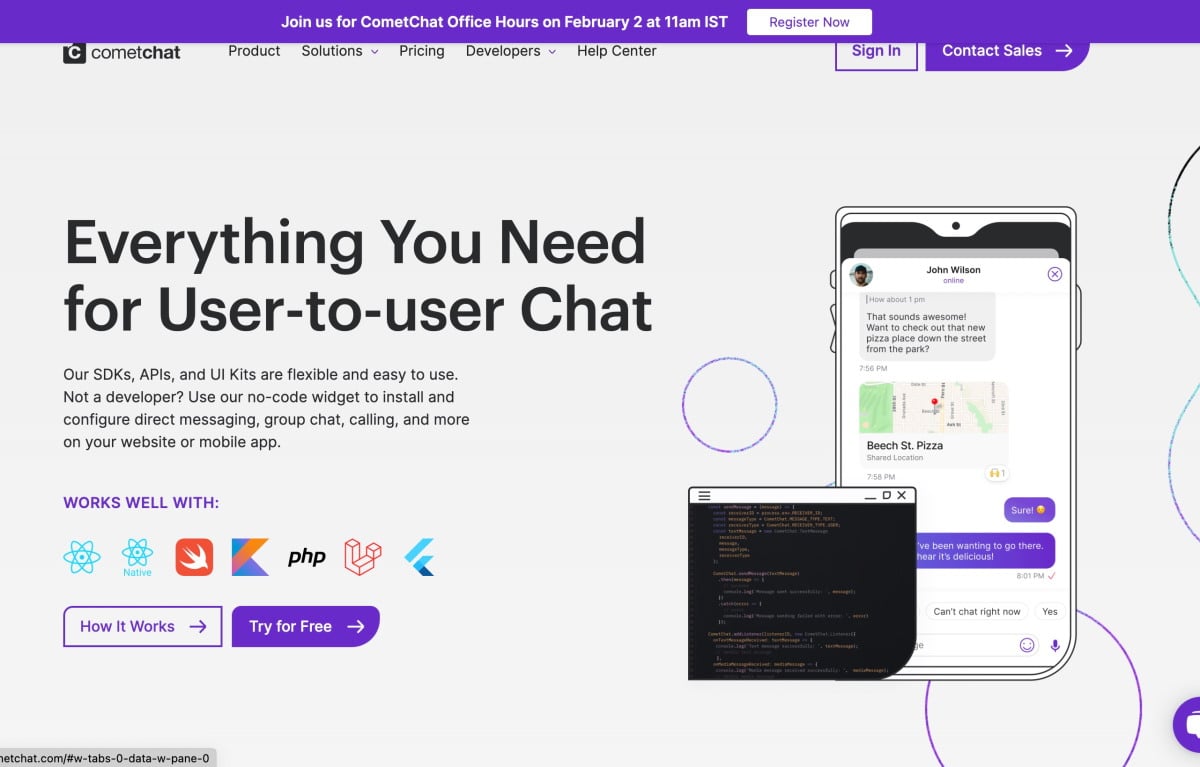
CometChat offers a comprehensive suite of SDKs and APIs designed to seamlessly integrate real-time messaging, voice, and video calling into mobile and web applications. Their solutions are tailored for developers seeking to enhance user engagement through robust communication features.
Key features:
- Customisable SDKs: CometChat provides feature-rich SDKs that allow developers to build bespoke chat and calling experiences with minimal development effort. These SDKs support various platforms, including React, iOS, Android, and Flutter.
- Modular architecture: The modular design of CometChat's SDKs facilitates easy customisation and extension of chat functionalities, enabling integration with webhooks, APIs, and other tools.
- Comprehensive features: With over 40 features, including moderation tools, notifications, and user experience enhancements, CometChat's SDKs offer a comprehensive solution for in-app communication.
- Security and compliance: CometChat ensures data security and privacy by adhering to industry standards such as HIPAA, GDPR, PIPEDA, SOC 2, and ISO 27001.
Pricing plans:
CometChat offers a range of pricing plans to accommodate different needs:
- Free Plan: Ideal for testing and integrating CometChat, this plan supports up to 100 users and includes all essential features.
- Basic Plan: Priced at $25 per month (billed annually), this plan includes rich in-app chat, push notifications, advanced moderation, and a global EDGE network.
- Advanced Plan: At $99 per month (billed annually), this plan offers AI rule-based moderation, email and SMS notifications, multi-tenancy, AI user copilot, in-depth insights, and HIPAA/BAA compliance.
- Enterprise Plan: Tailored for large-scale applications, this plan provides zero overages, AI rule-based and context-based moderation, AI context-based insights and enrichment, 10% concurrency included, up to 99.999% SLA, and gold implementation and support. Pricing is available upon request.
Apphitect
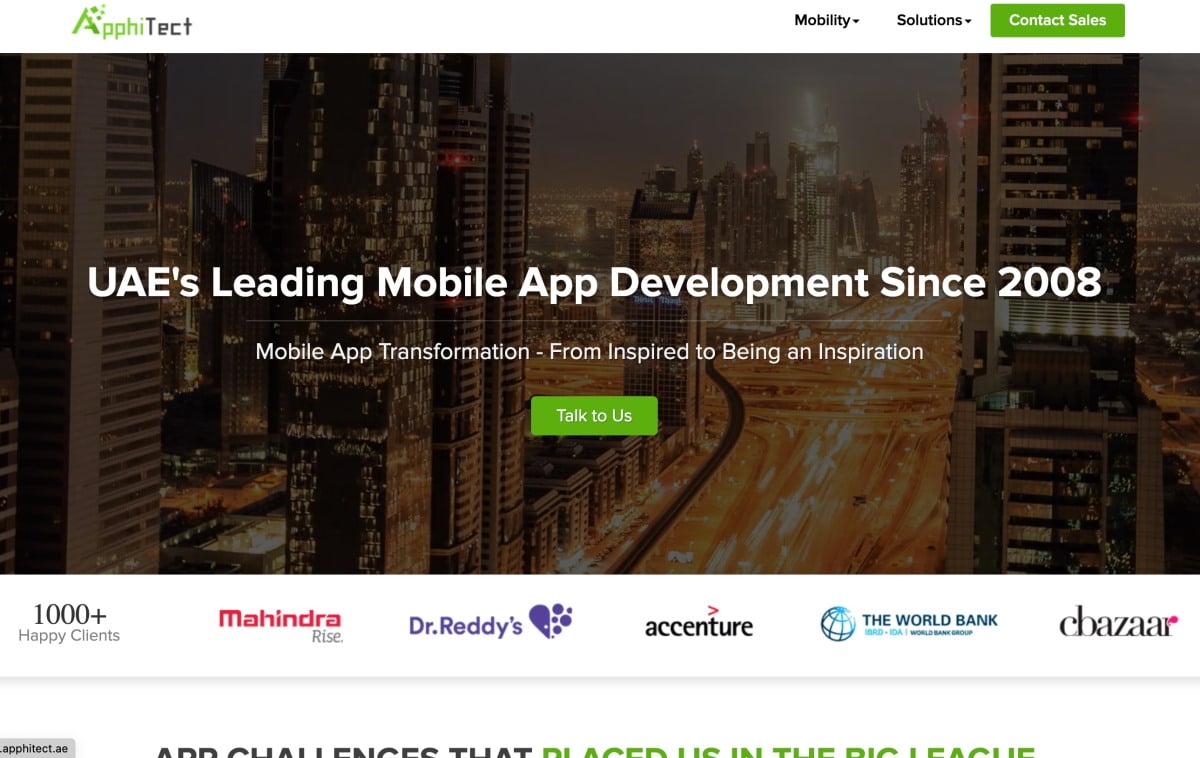
Apphitect offers a comprehensive suite of video conferencing solutions tailored for organisations of all sizes. Their platform provides a fully customisable API and SDK, enabling seamless integration of video calling functionalities into applications across iOS, Android, and web platforms.
Key features:
- Customisable API: Apphitect's API allows for extensive customisation, enabling businesses to tailor the video conferencing experience to their specific requirements.
- Multiple communication channels: The platform supports one-to-one video calls, group video conferencing, webinars, and other virtual communication formats, facilitating diverse communication needs.
Pros:
- High scalability: Capable of supporting up to 1 billion conversations, making it suitable for large enterprises.
- Customisation: Offers a 100% customisable API, allowing businesses to tailor the solution to their specific needs.
- Security and compliance: Meets various security standards, including SOC2, HIPAA, TLS, AES256, and GDPR, ensuring data protection and regulatory adherence.
Cons:
- Limited Feature Set: Some users have noted that Apphitect's SDK may offer fewer features compared to other providers.
Pricing:
Apphitect employs a quote-based pricing model, offering a one-time license purchase for unrestricted access. The cost varies based on factors such as projected user base, desired customisation, and hosting preferences (self-hosted or Apphitect's cloud).
Wrap up
SDKs are now essential for any business looking to integrate video calling into their products, and 2026 has seen a shift towards AI-enhanced features, cloud-native deployments, and advanced security measures. As companies look to stay competitive, adopting the latest video SDK solutions will be key to offering seamless and secure user experiences.
An SDK can save a developer significant time and resources while providing a reliable and scalable software solution. If you’re looking for a top-quality SDK to integrate video conferencing functionality into your app or software, the 7 vendors in this list are great choices.
To get started with the Digital Samba video calling SDK, contact our sales team.
Share this
You May Also Like
These Related Stories

Call Metrics to Assess Video Quality
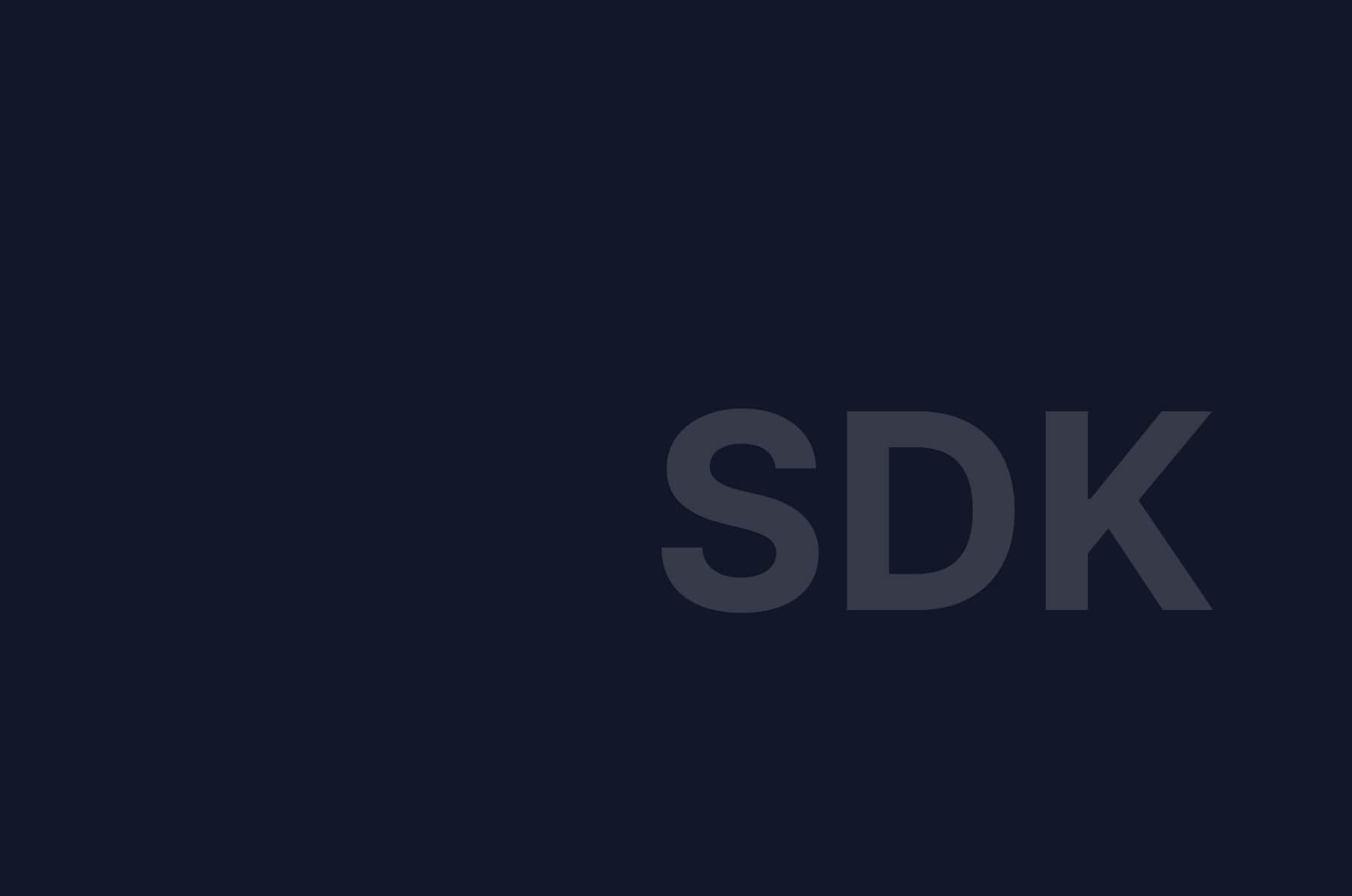
Meet the Digital Samba Video SDK



